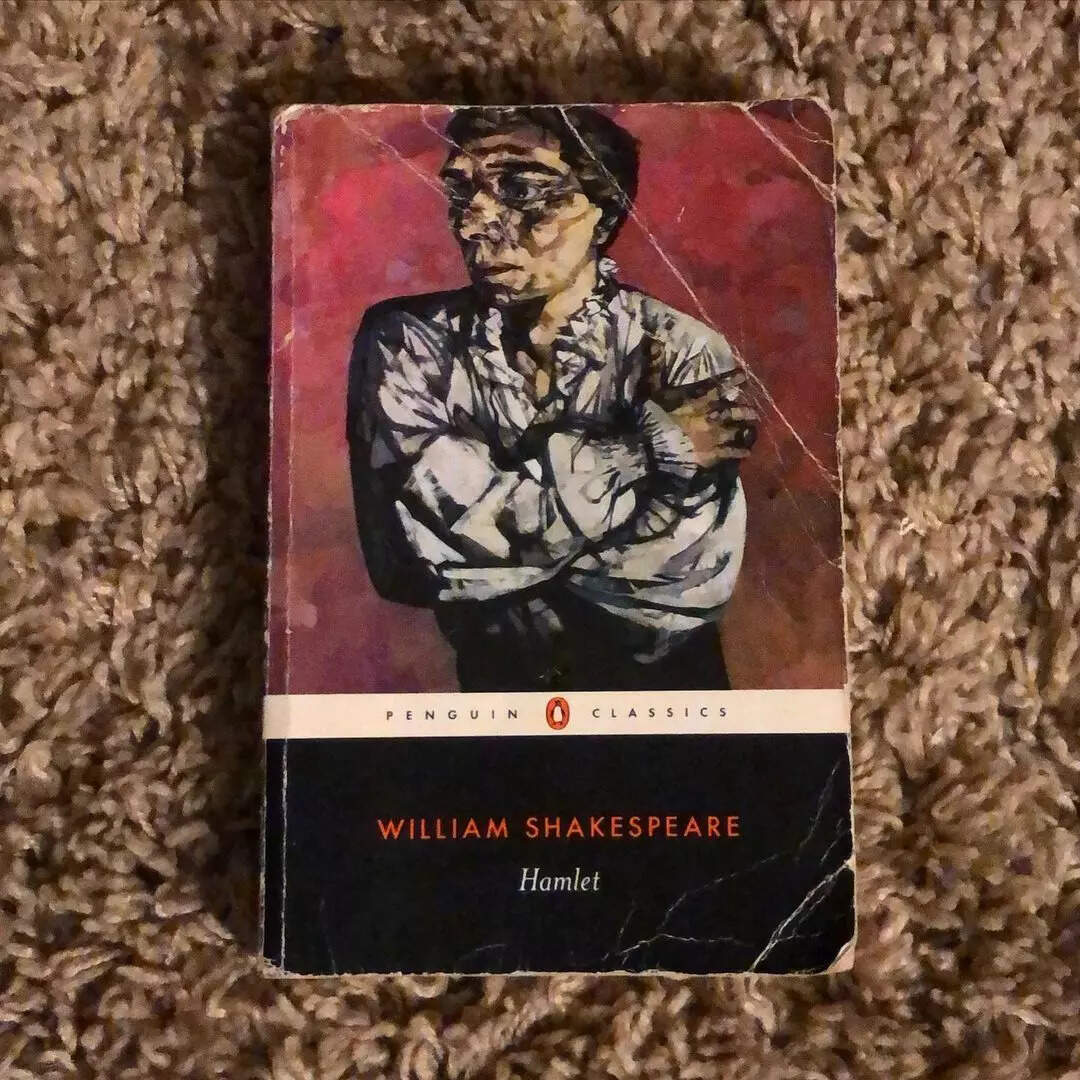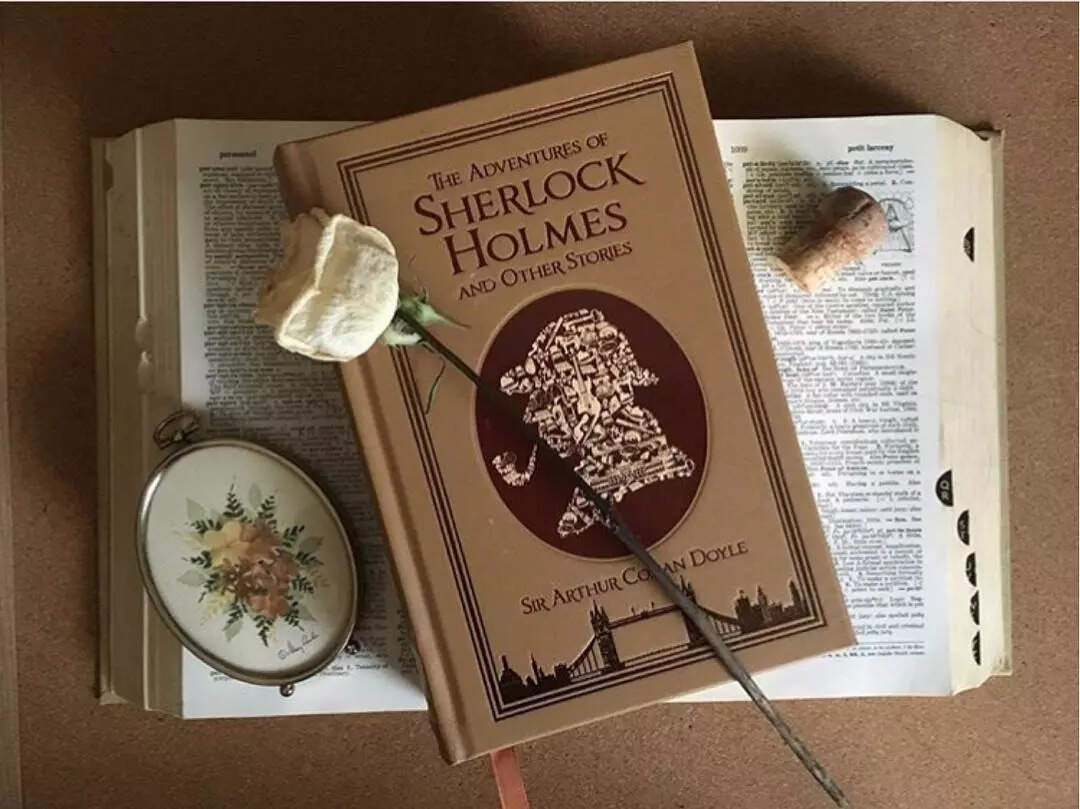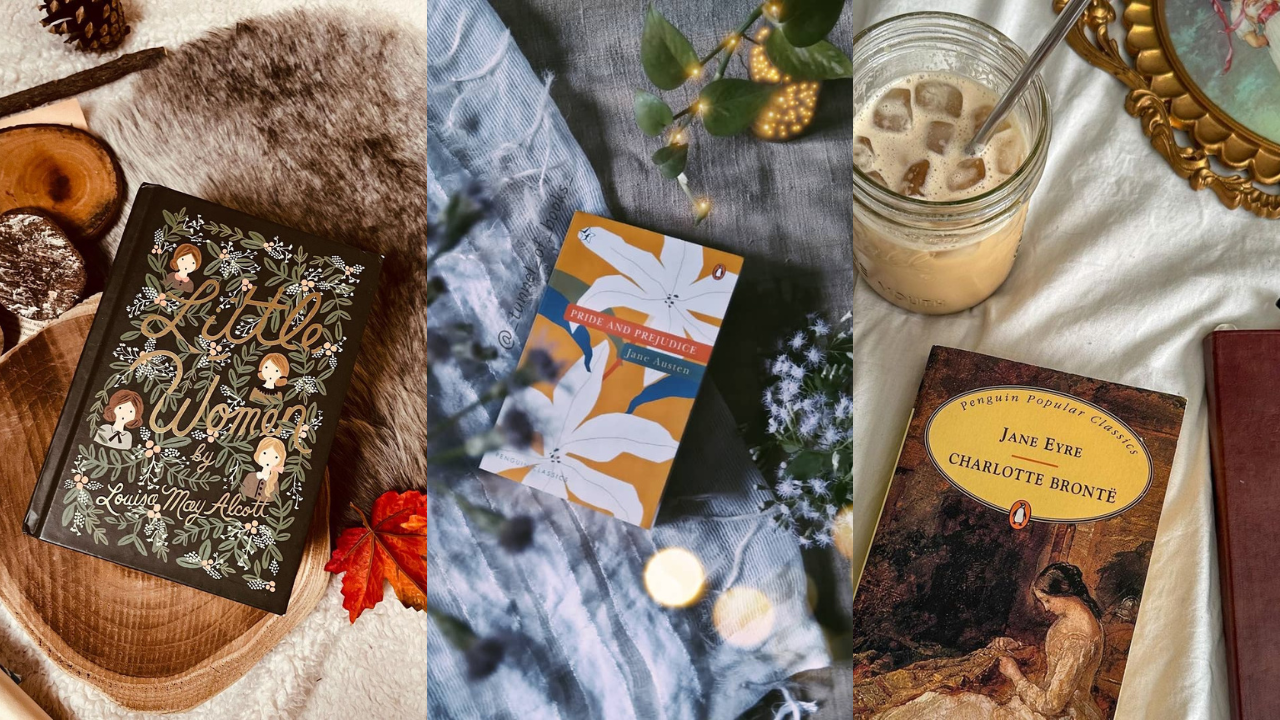
10 Classic Books and Their Modern Retellings (Picture Credit – Instagram)
Classic literature has long been a source of inspiration for contemporary authors, leading to an array of modern retellings that reimagine traditional narratives through a contemporary lens. These retellings offer fresh perspectives and new cultural contexts, making old stories accessible and relatable to today’s readers. Here we explore ten classic novels alongside their modern counterparts, highlighting the creative dialogues between past and present.
1. Pride and Prejudice by Jane Austen and Eligible by Curtis Sittenfeld
Jane Austen’s 1813 novel, ‘Pride and Prejudice,’ remains a seminal exploration of love, class, and societal expectations in Georgian England. Curtis Sittenfeld’s ‘Eligible’ transports Elizabeth Bennet and Mr. Darcy to modern-day Cincinnati, where issues of class snobbery are replaced with discussions on gender roles, sexuality, and a reality TV framework. This retelling maintains the wit and romance of Austen’s original while confronting contemporary issues.
2. Jane Eyre by Charlotte Brontë and Jane Steele by Lyndsay Faye
‘Jane Eyre’ is an 1847 novel that explores themes of morality, religion, and feminism through the life of an orphaned girl who becomes a governess. Lyndsay Faye’s ‘Jane Steele’ reimagines the titular character as a serial killer in Victorian England who, like Brontë’s Jane, seeks justice and moral reconciliation, yet does so by taking matters into her own hands in a darkly humorous twist.
3. The Odyssey by Homer and The Penelopiad by Margaret Atwood
Homer’s epic poem, ‘The Odyssey,’ details Odysseus’ perilous journey home after the Trojan War, focusing largely on his adventures. Margaret Atwood’s ‘The Penelopiad’ retells the story from the perspective of Odysseus’ wife, Penelope, blending modern sensibilities with ancient myth, exploring themes of feminism and the silencing of women’s voices throughout history.
4. Hamlet by William Shakespeare and Nutshell by Ian McEwan
Shakespeare’s ‘Hamlet’ is a tragedy that delves deep into themes of revenge, madness, and moral corruption. Ian McEwan’s ‘Nutshell’ offers a quirky twist by narrating the tale from the viewpoint of a fetus inside the womb of Gertrude, who, in this version, is plotting with her lover to kill her husband. This novel is both a psychological thriller and a philosophical exploration of human conflict.

5. Moby-Dick by Herman Melville and Railsea by China Miéville
Melville’s 1851 novel about Captain Ahab’s obsessive hunt for the great white whale is reimagined in China Miéville’s ‘Railsea.’ This young adult novel replaces the ocean with endless railway tracks and the whale with a giant mole, yet it retains the original’s exploration of obsession and the monomania of its captain.
6. Wuthering Heights by Emily Brontë and Wuthering High by Cara Lockwood
This dark tale of passionate and destructive love between Catherine Earnshaw and Heathcliff is transformed in “Wuthering High” into a story set in a boarding school on the California coast. The novel explores similar themes of love, revenge, and the supernatural, making it accessible to a teenage audience.
7. The Great Gatsby by F. Scott Fitzgerald and Great by Sara Benincasa
Fitzgerald’s portrayal of the American Dream gone awry in the Roaring Twenties is cleverly adapted in Sara Benincasa’s “Great.” This version features a teenage blogger who discovers the world of the wealthy elite in modern-day East Hampton, exploring current issues like celebrity culture and social media envy.
8. Sherlock Holmes Stories by Sir Arthur Conan Doyle and A Study in Charlotte by Brittany Cavallaro
Brittany Cavallaro takes the classic detective stories of Sherlock Holmes and Dr. Watson and introduces their great-great-great-grandchildren, Charlotte Holmes and Jamie Watson, in a modern American high school setting. The series honours the original with its complex puzzles while exploring contemporary teen issues.

9. King Lear by William Shakespeare and We Are Not Ourselves by Matthew Thomas
While not a direct retelling, Matthew Thomas’s novel mirrors the tragic essence of ‘King Lear’ in its story of an Irish-American family dealing with Alzheimer’s disease. It explores themes of legacy, identity, and the disintegration of a family empire, reminiscent of Lear’s kingdom.
10. Little Women by Louisa May Alcott and Meg, Jo, Beth, and Amy by Rey Terciero and Bre Indigo
This graphic novel adaptation of ‘Little Women’ brings the March sisters to a modern, diverse New York City and explores contemporary issues such as gender identity, race, and sexual orientation. It retains the heart and soul of Alcott’s narrative while reflecting today’s more inclusive society.
These modern retellings enrich the narratives of classic novels, illustrating that the core themes of love, ambition, identity, and justice remain relevant across the ages. They invite both new readers and lifelong fans to experience well-loved stories through the lens of contemporary culture and concerns, ensuring that these age-old narratives continue to resonate in our modern world.
